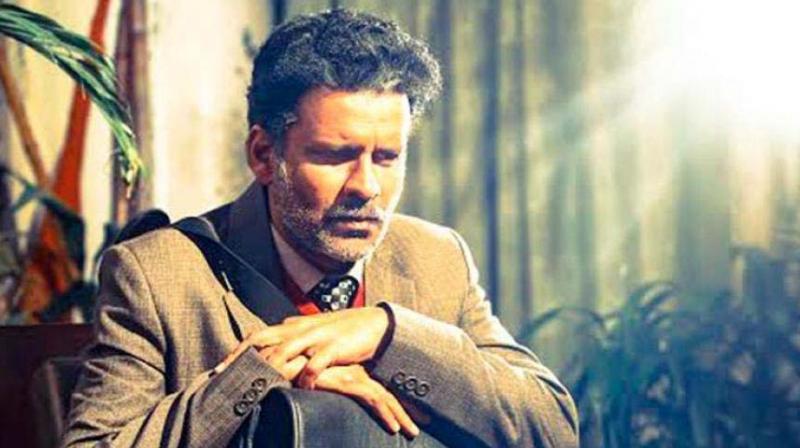2016: The year that was in Bollywood

As the year builds to its climax, we look back at the films that have left their mark on us. Some didn’t give us any reason to fondly recall their appearance in theatres, while a few failed to excite us even minimally. What marked the year was a mixed bag of some good films; a handful of exceptionally great ones (Pink, Raman Raghav 2.0); several utterly unremarkable scripts, and a few highly awaited ones that dived into creative depths of demented degradation.
The triumvirate — SRK (Fan), Salman (Sultan), Aamir (Dangal) — dominated Bollywood once again. Other films like Waiting, Kapoor & Sons, Ae Dil Hai Mushkil, Dear Zindagi, Udta Punjab, Neerja, Airlift, Nil Battey Sannata deserve special mention if not entirely for their scripts, then for their splendid performances. In the midst of all of the aforementioned, there are always some films that slip through the cracks, and this year was no exception. Here’s my list of a few of the most memorable films you must catch DVDs of, and watch.
MUST WATCH
Chauthi Koot:
This is in Punjabi. But it deserves to be seen by the multitude. Based on two short stories in a collection by Waryam Singh Sandhu, and directed by Gurvinder Singh, the film is set during the Sikh separatist movement of the 1980s that led to Operation Blue Star. The restlessness shown in a hamlet is really the microcosm that echoes the sentiment of the trials of the poor farmers and the sufferings of the voiceless common man of the 80s bearing the brunt of the darkness that defined Punjab then.
Here, we get to see a side of Punjab that has been completely eclipsed by the loud, uncanny and bizarre portrayals of a community in countless Bollywood films. Although there are no political sides taken, if you want to grasp the agonising lives of some of these men and women, and look deeper, you will appreciate a slice of history of contemporary Punjab through the eyes of bruised and battered men in the state by separatists. It’s the kind of film that comes once in a while.
Aligarh:
The Hansal Mehta directed and Apurva Asrani Ishani Banerjee written Aligarh treads softly into the conflict area between an individual’s right to his sexuality and the society’s invasion of his privacy. As the elderly professor at the AMU getting hounded out because of his sexual orientation, Manoj Bajpayee is self-effacing.
Aligarh’s forte lies in its approach to a sensitive issue that lays bare people’s hypocritical minds. Mehta doesn’t allow stereotypical slant of overt sentimentality to communicate his perspective: he remains gentle, and thus, sincere in his study of a victim of deep-seated intolerance.
Phobia:
A chilling storyline about a painter Mehak (Apte) who after an assault by a cab driver, suffers from anxiety disorder called agoraphobia. Barring a few most of our horror content has the same old routine situations that demand stock expressions.
Phobia leaves you second guessing: so gripping are some moments in this psycho-thriller. Elements like fear, black cat and shock coupled with suspense, mystery, and other contrivances keep you engaged throughout, and relentlessly scary.
Island City:
Ruchika Oberoi’s maiden venture communicates the central theme of three tragi-comic tales conveying the flavour of today’s impersonal Mumbai: love, longing, hope, ambition and a constant yearning for all the unfulfilled desires. All three will find takers in almost every other city too since the emotional baggage all characters hold is bound to influence every human.
DUDS
Some disappointments were complete washouts as they were neither organically developed scripts nor authentic in their portrayal of the lead characters. Forgoing accuracy and trading them with not just erroneousness but blunders led to truth becoming a casualty in these ill-conceived and almost silly celluloid versions of real people.
Rustom:
The real account of the infamous Nanavati case is part of law syllabus in colleges in India. One, therefore, expected a strong allegiance to the murder that shook the nation in the late 50s. What we see, instead, is director Tinu Suresh Desai’s flat dispassionate romance devoid of any emotion. It turns even more lacklustre when the fictional elements to add unnecessary details are added while all along trying to showcase the lead Akshay Kumar’s character as “holier than thou”, who could possibly do no wrong. It loses grip midway, and makes you wonder if the complexity of legality could ever be part of our narrative. Other films based on the same case — Yeh Raste Hain Pyar Ke and Achanak — were far more loyal to the actual happenings and gave us something to chew on.
Sarabjit:
As per director Omung Kumar, this was supposedly an Aishwarya Rai Bachchan film, who tries hard to look deglam and sultry in essaying the role of a Sardarni who fought tooth and nail to bring back her brother Sarabjit from across the border. Despite the film boasting of a great performance by Randeep Hooda, who incidentally never lets you down, its drawback is the screechy and unconvincing Rai who fails to draw neither the critics nor the regular masses.
M.S. Dhoni:
M.S. Dhoni: The Untold Story is a biographical sports film directed by Neeraj Pandey and funded by the subject’s close aides. A hagiography, it’s a biopic that leaves out all that could have been rather unpalatable to Dhoni and his fans: it conveniently focuses only on his achievements, and not on the umpteen controversies the ace Cricketer was dragged into, and has still not been exonerated by the courts in a few.
Mohenjo Daro:
Ashutosh Gowarker failed to elicit even a tepid response from his audiences who loved his directorial debut Lagaan and Jodha Akbar not many moons ago. Mounted on a much larger scale than all his earlier films, but in terms of content, this has no heft to keep its audience glued to the screen.

